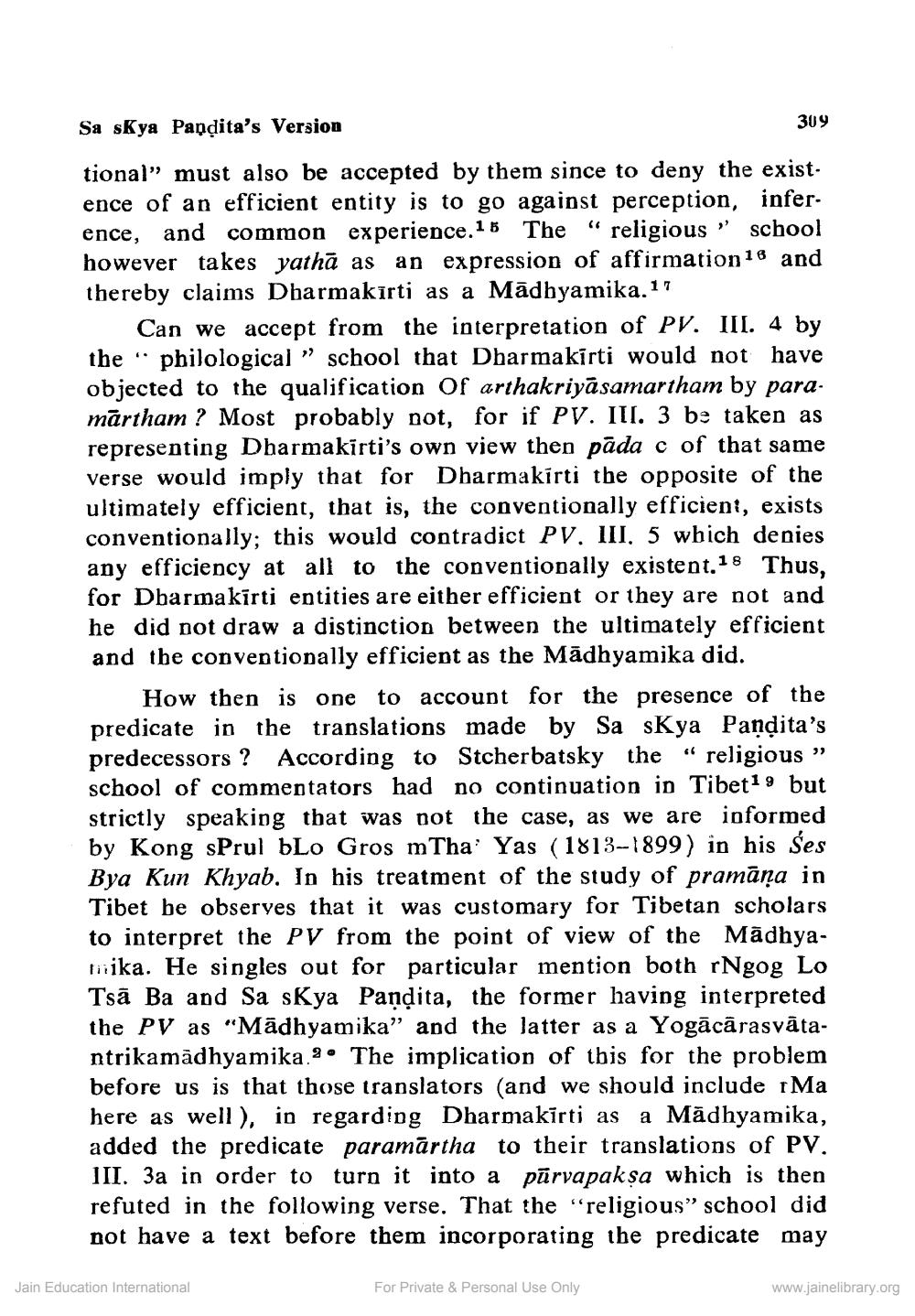________________
Sa sKya Pandita's Version
tional" must also be accepted by them since to deny the existence of an efficient entity is to go against perception, inference, and common experience.15 The "religious school however takes yatha as an expression of affirmation 18 and thereby claims Dharmakirti as a Madhyamika.17
309
the
Can we accept from the interpretation of PV. III. 4 by philological" school that Dharmakirti would not have objected to the qualification Of arthakriyāsamartham by paramartham? Most probably not, for if PV. III. 3 be taken as representing Dharmakirti's own view then pada c of that same verse would imply that for Dharmakirti the opposite of the ultimately efficient, that is, the conventionally efficient, exists conventionally; this would contradict PV. III. 5 which denies any efficiency at all to the conventionally existent.18 Thus, for Dharmakirti entities are either efficient or they are not and he did not draw a distinction between the ultimately efficient and the conventionally efficient as the Madhyamika did.
66
How then is one to account for the presence of the predicate in the translations made by Sa sKya Pandita's predecessors? According to Stcherbatsky the religious school of commentators had no continuation in Tibet19 but strictly speaking that was not the case, as we are informed by Kong sPrul bLo Gros mTha Yas (1813-1899) in his Ses Bya Kun Khyab. In his treatment of the study of pramāņa in Tibet be observes that it was customary for Tibetan scholars to interpret the PV from the point of view of the Madhyamika. He singles out for particular mention both rNgog Lo Tsa Ba and Sa sKya Pandita, the former having interpreted the PV as "Mādhyamika" and the latter as a Yogācārasvātantrikamādhyamika.2 The implication of this for the problem before us is that those translators (and we should include Ma here as well), in regarding Dharmakirti as a Madhyamika, added the predicate paramartha to their translations of PV. III. 3a in order to turn it into a pūrvapakṣa which is then refuted in the following verse. That the "religious" school did not have a text before them incorporating the predicate may
Jain Education International
For Private & Personal Use Only
39
www.jainelibrary.org




